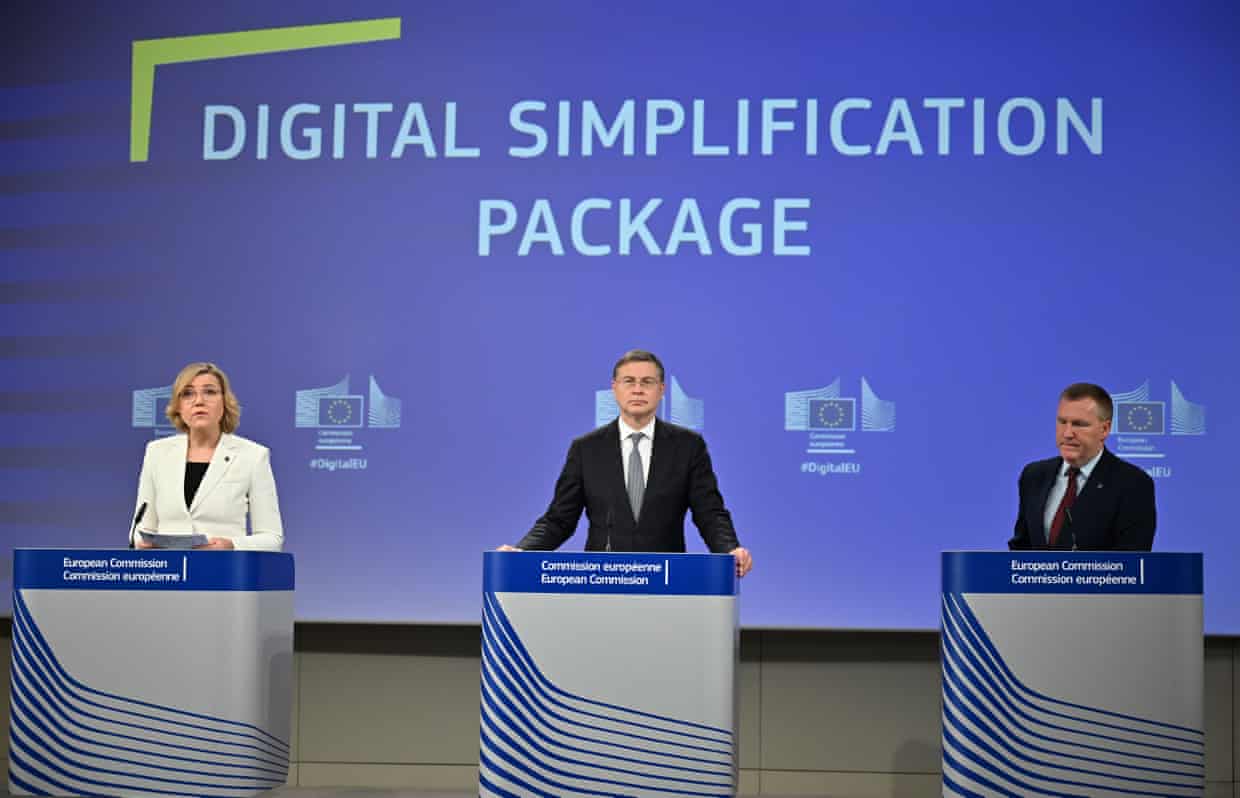Reeves freezes fuel duty for now as she confirms 3p-a-mile electric vehicle charge

Fuel duty will be frozen again, but only for five months until September 2026, the chancellor has announced, as she confirmed a new 3p-a-mile charge for electric cars from 2028.Rachel Reeves will freeze fuel duty in April at 52.95p a litre for petrol and diesel – a 16th successive year without a rise – but the so-called “temporary” 5p cut introduced by Rishi Sunak will be reversed in stages from September.Raising fuel duty has become politically contentious since the first freeze announced by the coalition government in 2010, but the eventual rise will help maintain a differential in running costs to encourage the transition to electric cars when the new mileage-based levy on EVs takes effect from 2028-29.Fuel duty in effect costs about 6p a mile on average for cars.
The Office for Budget Responsibility (OBR) said the continued freeze of fuel duty until September and the staggered reversal of the 5p over late 2025-26 would cost the Treasury an extra £2.4bn next year and £900m a year thereafter, but it would bear down on the UK’s CPI inflation by 0.1 percentage points compared with its officially forecast rise in duty.Reeves told the Commons: “Because all cars contribute to the wear and tear on our roads, I will ensure that drivers are taxed according to how much they drive and not just by the type of car they own.”The additional electric vehicle excise duty (VED) will be payable with existing VED or road tax at 3p a mile for fully electric cars or 1.
5p for plug-in hybrids.Reeves said it would help “double road maintenance funding in England over the course of this parliament”.She pledged to accelerate the rollout of public EV charging and exemptions from business rates, but disappointed some by not lowering VAT on public charging to meet the domestic rates for electricity.The new EV pay-per-mile charge is expected to raise £1.1bn in 2028-29, rising to £1.
9bn in 2030-31.Electric vans, buses and HGVs will not be liable.With EV advocates alarmed about the potential impact on the transition from fossil fuel to greener vehicles, Reeves said she was “providing support to boost our British car industry”, increasing the threshold for the “luxury car tax” to £50,000 for EVs and providing another £1.3bn in funding for the electric car grant, extending it to 2030.Nonetheless, the OBR forecast that the pay-per-mile charge and counterbalancing measures would reduce EV sales on average by a net 24,000 vehicles a year over the next five years.
Sign up to Business TodayGet set for the working day – we'll point you to all the business news and analysis you need every morningafter newsletter promotionReeves said she was also extending the £3 bus fare cap, as well as freezing rail fares for the first time in 30 years.The government will also remove a loophole that has allowed many taxis outside London to be free of VAT – meaning fares could rise if firms pass on the 20% charge to passengers.Reeves said she would “improve competition in our taxi industry by ending ride-hailing companies’ use of a discount scheme intended for coach tours”.The move has been described by some as a “taxi tax” but was backed by Steve McNamara, the general secretary of the Licensed Taxi Drivers’ Association, as “a landmark moment for fairness and integrity in our industry”.

Macquarie Dictionary announces ‘AI slop’ as its word of the year, beating out Ozempic face
AI slop is here, it’s ubiquitous, it’s being used by the US president, Donald Trump, and now, it’s the word of the year.The Macquarie Dictionary dubbed the term the epitome of 2025 linguistics, with a committee of word experts saying the outcome embodies the word of the year’s general theme of reflecting “a major aspect of society or societal change throughout the year”.“We understand now in 2025 what we mean by slop – AI generated slop, which lacks meaningful content or use,” the committee said in a statement announcing its decision.“While in recent years we’ve learnt to become search engineers to find meaningful information, we now need to become prompt engineers in order to wade through the AI slop. Slop in this sense will be a robust addition to English for years to come

AI could replace 3m low-skilled jobs in the UK by 2035, research finds
Up to 3m low-skilled jobs could disappear in the UK by 2035 because of automation and AI, according to a report by a leading educational research charity.The jobs most at risk are those in occupations such as trades, machine operations and administrative roles, the National Foundation for Educational Research (NFER) said.Highly skilled professionals, on the other hand, were forecast to be more in demand as AI and technological advances increase workloads “at least in the short to medium term”. Overall, the report expects the UK economy to add 2.3m jobs by 2035, but unevenly distributed

‘It’s hell for us here’: Mumbai families suffer as datacentres keep the city hooked on coal
As Mumbai sees increased energy demand from new datacenters, particularly from Amazon, the filthiest neighbourhood in one of India’s largest cities must keep its major coal plantsEach day, Kiran Kasbe drives a rickshaw taxi through his home neighbourhood of Mahul on Mumbai’s eastern seafront, down streets lined with stalls selling tomatoes, bottle gourds and aubergines–and, frequently, through thick smog.Earlier this year, doctors found three tumours in his 54-year-old mother’s brain. It’s not clear exactly what caused her cancer. But people who live near coal plants are much more likely to develop the illness, studies show, and the residents of Mahul live a few hundred metres down the road from one.Mahul’s air is famously dirty

One in four unconcerned by sexual deepfakes created without consent, survey finds
One in four people think there is nothing wrong with creating and sharing sexual deepfakes, or they feel neutral about it, even when the person depicted has not consented, according to a police-commissioned survey.The findings prompted a senior police officer to warn that the use of AI is accelerating an epidemic in violence against women and girls (VAWG), and that technology companies are complicit in this abuse.The survey of 1,700 people commissioned by the office of the police chief scientific adviser found 13% felt there was nothing wrong with creating and sharing sexual or intimate deepfakes – digitally altered content made using AI without consent.A further 12% felt neutral about the moral and legal acceptability of making and sharing such deepfakes.Det Ch Supt Claire Hammond, from the national centre for VAWG and public protection, reminded the public that “sharing intimate images of someone without their consent, whether they are real images or not, is deeply violating”

Can’t tech a joke: AI does not understand puns, study finds
Comedians who rely on clever wordplay and writers of witty headlines can rest a little easier, for the moment at least, research on AI suggests.Experts from universities in the UK and Italy have been investigating whether large language models (LLMs) understand puns – and found them wanting.The team from Cardiff University, in south Wales, and Ca’ Foscari University of Venice concluded that LLMs were able to spot the structure of a pun but did not really get the joke.An example they tested was: “I used to be a comedian, but my life became a joke.” If they replaced this with: “I used to be a comedian, but my life became chaotic,” LLMs still tended to perceive the presence of a pun

Civil liberties groups call for inquiry into UK data protection watchdog
Dozens of civil liberties campaigners and legal professionals are calling for an inquiry into the UK’s data protection watchdog, after what they describe as “a collapse in enforcement activity” after the scandal of the Afghan data breach.A total of 73 academics, senior lawyers, data protection experts and organisations including Statewatch and the Good Law Project, have written a letter to Chi Onwurah, the chair of the cross-party Commons science, innovation and technology committee, coordinated by Open Rights Group, calling for an inquiry to be held into the office of the information commissioner, John Edwards.“We are concerned about the collapse in enforcement activity by the Information Commissioner’s Office, which culminated in the decision to not formally investigate the Ministry of Defence (MoD) following the Afghan data breach,” the signatories state. They warn of “deeper structural failures” beyond that data breach.The Afghan data breach was a particularly serious leak of information relating to individual Afghans who worked with British forces before the Taliban seized control of the country in August 2021

Labour is still in a muddle on North Sea oil and gas | Nils Pratley

Ed Miliband confirms crackdown on North Sea exploration – but new drilling will continue

ChatGPT firm blames boy’s suicide on ‘misuse’ of its technology

Europe loosens reins on AI – and US takes them off

Commonwealth Games hosts Ahmedabad vow not to repeat Delhi 2010 farce

Field of Dreams-like shrine to cricket built ‘from bud to bat’ – photo essay